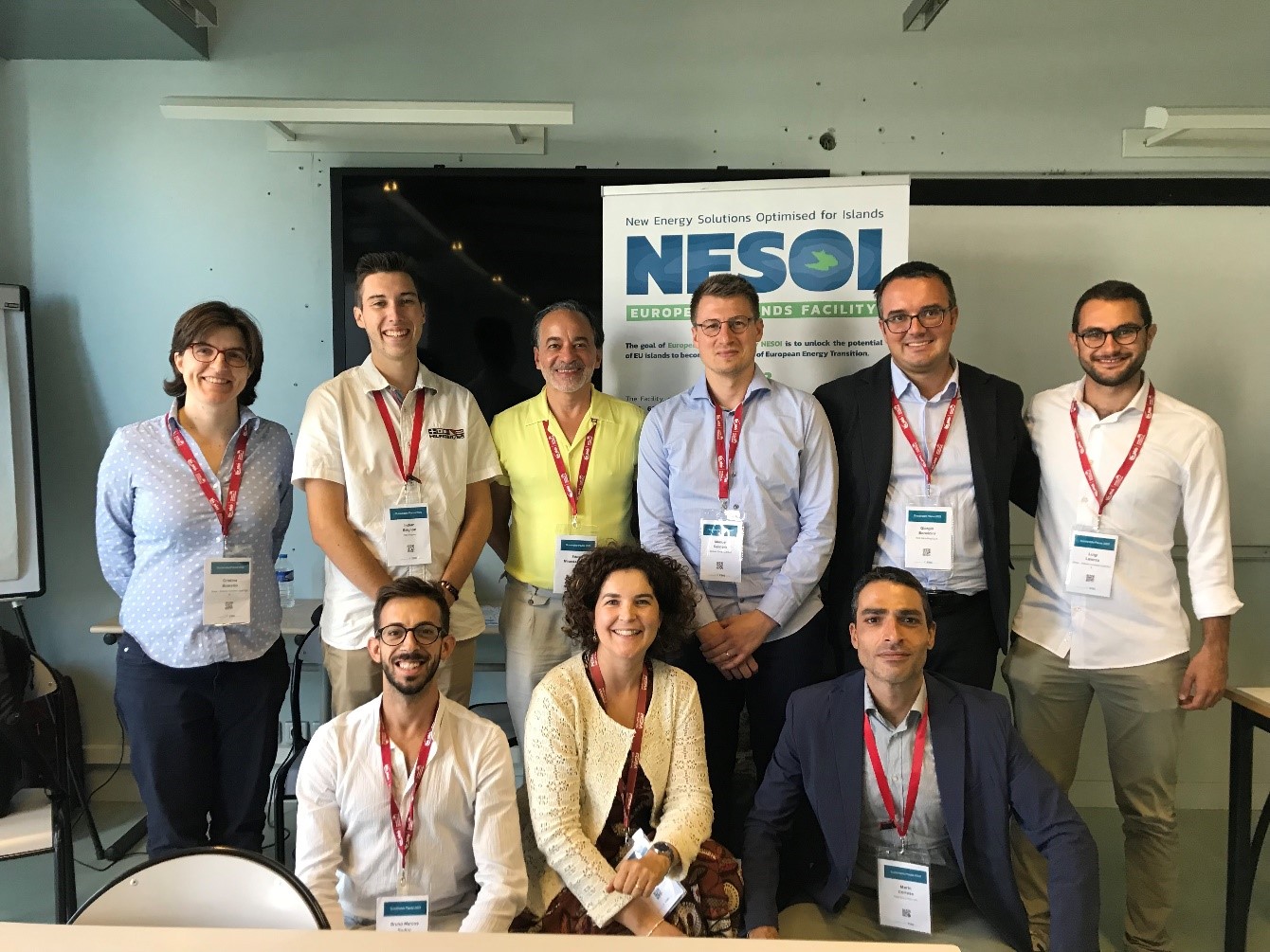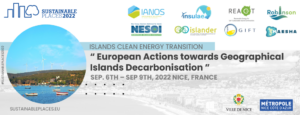
On the 09.09.2022, the ISLANDER project was part of the Sustainable Places 2022 workshop on European Actions Towards Geographic Islands Decarbonisation together with other H2020 funded projects. In two interactive sessions the participants discussed funding possibilities and innovation aspects for decarbonising islands.
Island’s energy systems face many challenges, such as security of supply and stability of the electricity grid. These challenges amplify the need for decarbonisation and a clean energy transition. Together with seven other projects, the ISLANDER project took part in a workshop at the Sustainable Places Conference in Nice to talk about European actions to decarbonise islands and transition to clean energy. The other H2020 projects present were: IANOS, INSULAE, NESOI, REACT, ROBINSON, MAESHA and GIFT.
The workshop started with a dedicated panel discussion on EU funding schemes and current policies to support small and medium islands toward smart energy management and decarbonization pathways. The speakers identified barriers and gave suggestions on what needs to be done to improve these policies. Steinbeis Europa Zentrum presented the ISLANDER project and talked about how funding islands decarbonisation through community owned energy can create significant value. Within the ISLANDER project, Steinbeis-Europa-Zentrum is leading a work package on the creation of a renewable energy community on the pilot island Borkum in Germany. Within this work package, the creation and feasibility of a renewable energy community is investigated. The study is accompanied by an active engagement of the citizens and main stakeholders on the island through direct contact, workshops and local media campaigns. Complementary, a technical and economic feasibility study of the renewable energy technologies that are being piloted on the island as part of the project and additional technologies that will be necessary for the full decarbonization of the island. Certainly, motivating local citizens and businesses to invest in renewable energy will play an important role in funding the energy transition on EU islands. Their contribution offers the opportunity to unlock plenty social, economical and environmental benefits for the islands inhabitants.
The second part of the workshop focused on the technical side of the EU projects. The speakers presented key learnings regarding technical and innovative aspects of the EU projects, project goals, replicability studies and shared their experiences from pilot or demonstration islands.
Through the workshop, synergies between the H2020 projects were reinforced and interesting questions and discussions were raised to further pursue the common goal of decarbonising the EU islands.

Follow us